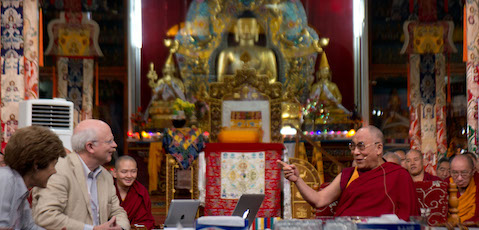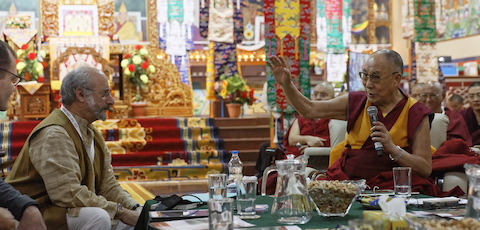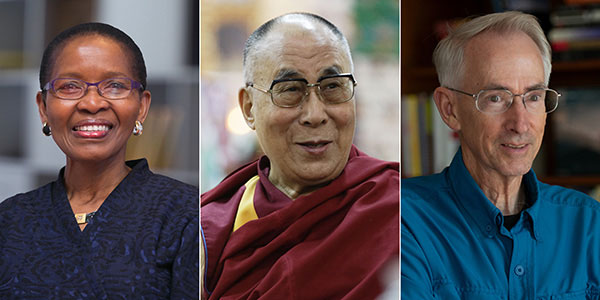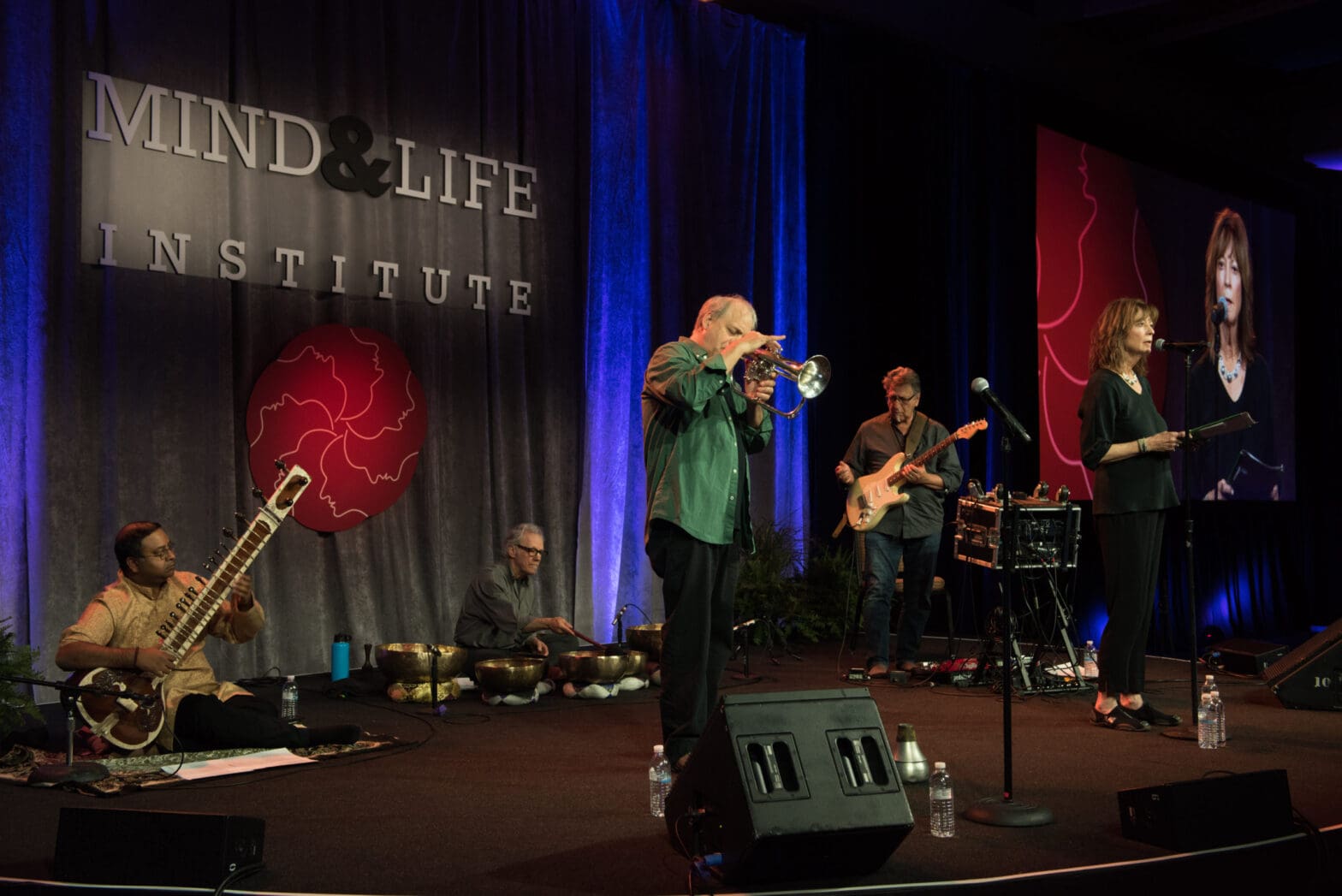This landmark six-day event, convened at the specific request of the Dalai Lama, brought together 20 of the world’s foremost scientists and philosophers with senior Tibetan scholars. Several thousand monks and nuns from numerous Tibetan monastic centers of learning were in attendance. In addition to critically engaging in important questions of mutual interest and challenge …
Topic Archives:
2015 Mind & Life Dialogue XXX
Western science has advanced our understanding of many foundational issues in cognition, and has expanded psychological and philosophical explorations of the mind. Among the central topics addressed in this scientific endeavor are perception, concept acquisition, the nature of conceptual thought, and the role of language in cognition, and the origins and content of our sense …
“Education of the Heart”: New Mind & Life Digital Dialogue Spotlights Role of Education in Human Flourishing
Today’s children are growing up at a time of unprecedented change and escalating challenges. How can we best equip them with the social-emotional skills and ethical dispositions needed to manage complex emotions, build positive relationships, and assume active roles within their local and global communities? A new Mind & Life Institute digital dialogue, “Education of the Heart,” offers rich …
New Mind & Life Podcast to Tell Deeper Story of Contemplative Science
In April, the new Mind & Life podcast will make its debut. Neuroscientist, meditator, and Mind & Life Science Director Wendy Hasenkamp will host the show, engaging experts across a range of disciplines in deepening our understanding of the mind and contemplative practice. Guests will share their research and insights, while probing broader issues: What are the …
Continue reading “New Mind & Life Podcast to Tell Deeper Story of Contemplative Science”
2019 Mind & Life Conversation
Join the Mind & Life Institute online for two special free Livestream events from Dharamsala, India. On October 30th and November 1st, we will host two unique conversations between Pumla Goboda-Madikizela, David Sloan Wilson, and the Dalai Lama. Livestream video replays are available.
Assessing beneficial relationship factors that support contemplative development
There has been considerable research and enthusiasm for investigating how contemplative training might improve social relationships. However, contemplative training is necessarily embedded in a network of social relationships, and researchers have not sufficiently studied the impact of one’s relationships on contemplative practice and development. Furthermore, contemplative training in the modern world is increasingly focused on …
Continue reading “Assessing beneficial relationship factors that support contemplative development”
Assessing the effect of contemplative-based training in self awareness, self-regulation, prosocial attitudes and ethical decision making in employees of private or public organizations in Mexico
Decisions from Mexican employees from the public sector have enormous impact on Mexican society. Government employees experience great levels of stress and many times they don’t have tools to deal with conflictive situations and decisions at work. As a means to promote well-being and secular ethics in government employees that may impact their productivity and …
Compassion training for emotional numbing in post-traumatic stress disorder
For individuals suffering from post-traumatic stress disorder (PTSD), the emotional numbing and isolation that are core aspects of their suffering often remain after initial treatments. The proposed study examined whether CBCT (Cognitively-Based Compassion Training), a secularized compassion program based on the Indo-Tibetan Buddhist lojong tradition, is effective for reducing emotional numbing and enhancing social connectedness …
Continue reading “Compassion training for emotional numbing in post-traumatic stress disorder”
Contemplative practice, emotional well-being, and the transformation of hostility in the lab and real world
This project examined the extent to which meditation can promote compassion and well-being, even in the face of conflict. Specifically, we examined whether compassion and mindfulness training can produce compassionate tendencies that act as an enduring inoculation against the negative effects of anger, using measures of subjective experience (e.g., anger, compassion, well-being) in daily life …
Contemplative Arts Evening Performance
The Contemplative Arts Evening will feature improvisatory collaborations among artists from wide-ranging creative, disciplinary, and cultural backgrounds in celebration of the age-old connection between music, creative arts, and the interior dimensions of human consciousness. Sitarist Srinivas Reddy draws upon his virtuosic grounding in the intricate raga/tala system of Hindustani classical music and opens the evening …






